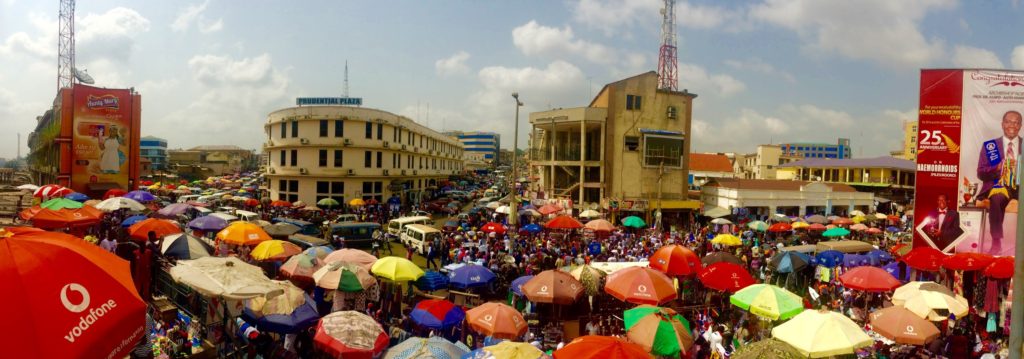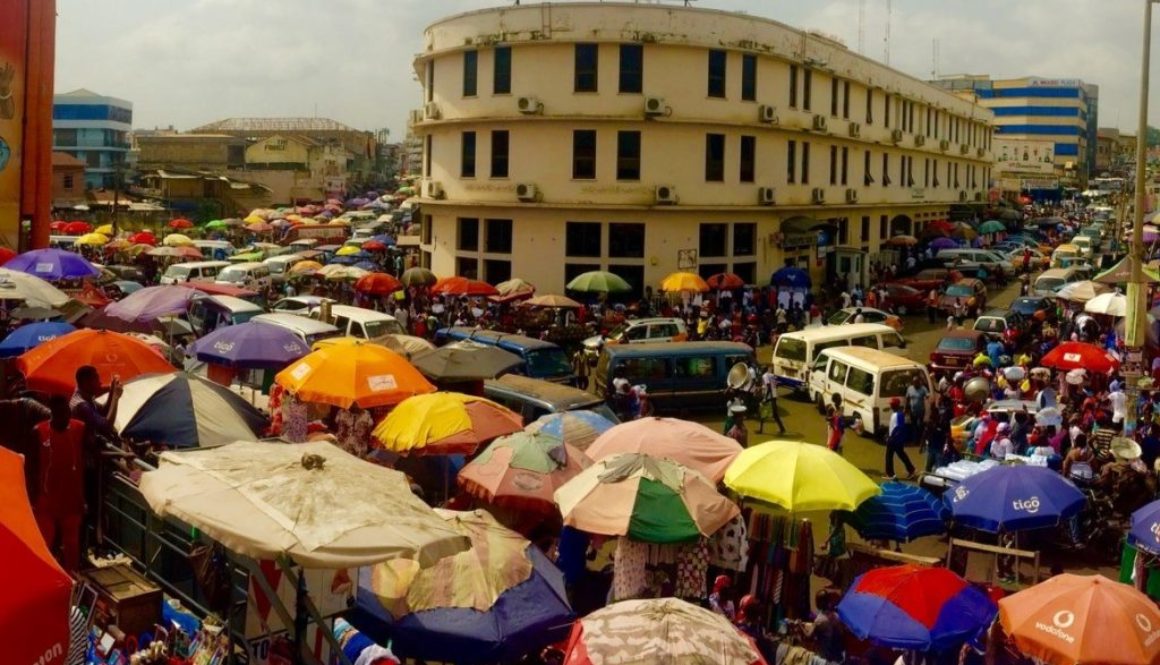What Ghana can teach the UK about innovation and entrepreneurship
By Rosie Coleman
The New Year is always a time for reflection. Having now been back in the UK for just under three weeks, this particular New Year has inevitably provided the perfect headspace to reflect on my three months in Ghana and is a good time to think about what the UK can learn from new and rising economies around the world.
I joined the Challenges Worldwide International Citizen Service programme because I wanted to broaden my understanding of business, digitalisation and innovation by working in an economy that was very different to the British one I’d spent my whole adult life. So whilst I’m very much still adjusting back to the British way of doing things, I am quite clear on the ways I think the UK can learn from Ghana’s approach to innovation and entrepreneurship.
Everyone has an entrepreneurial spirit
In Ghana, being entrepreneurial is a way of life and not just a fancy term for someone with a big enough bank balance to make her good idea a reality. Graduate schemes, of the type that millennials in the UK have become used to worrying about, don’t feature much in Ghana, where it’s much more commonplace for new graduates to be already working on their own small individual business projects. So many people are driven to make a difference to themselves and the economic growth of their country and, more often than not, help to solve one of the issues facing their community too. We in the UK could benefit from the sense of determination and drive that I experienced firsthand on countless occasions whilst in Ghana.
Working with limited resources is seen as a challenge, not an obstacle to success
Ghana is a middle-income country and has already succeeded in halving the number of Ghanaians living in poverty in recent years. However, it is undeniable that Ghana has fewer financial resources and less economic buoyancy to rely on than the UK. Not only did I never anyone use this as an excuse for not starting a project they believe in, more often than not it is the very reason they’ve started the project. There’s a real sense of collective drive and ambition to continue the amazing economic growth Ghana has experienced over the course of just two generations. “We’re all in this together” actually means something to the majority of Ghanaians.
Buying local is the norm
With a wealth of SMEs within their economy, Ghanaians are never short of local producers to utilise within their supply chains. Cheap international labour is not such a driving force for outsourcing, with most enterprises valuing the speed, efficiency and long-term national benefits of using a local supplier. This approach sure has helped the Ghanaian economy grow at a far faster rate than the British ‘race to the bottom’ approach.

Recommendations come from real people and communities
Not online reviews that have been written by strangers. People still talk to each other, trust the advice of neighbours, aunties, members of the congregation, and this translates to real sales for SMEs across a huge range of sectors. Whilst digitalisation is occurring at very fast rates across the country, this hasn’t come at the detriment of communities and genuine relationships.
Mobile technology really is king
Banking doesn’t rely on holes in the wall or PIN numbers to transfer money between contacts in West Africa. No, where more than 60% of the population don’t have a bank account, mobile money has given economic independence to millions of Ghanaians. Mobile money is used for pleasure and business; with a simple instant transaction at one of the thousands of corner shops or street-level enterprises, money can be transferred from mobile credit to cash in hand. It’s a masterclass in adapting technology to meet local demands and proves that context really is key to breaking into any new market.
Self-sustaining is not just a buzzword
It is commonplace for houses to have a smallholding of home-grown veg or kept animals, not just because it’s a handy extra revenue stream but also because sustainability is empowering! Even in the trickiest of outside spaces, a flexible approach is always found. Our wonderful family I lived with in Kumasi grows amazing mushrooms, keeps a small rabbit farm and has a really smart self-made backup power supply for when the power outages occur. If Britain is going to come anywhere close to meeting our climate change targets, adopting the self-sustaining mantra practised and preached by Ghana would be a good start.

The real value is placed on international networks and regional collaboration
Ghana has been at the forefront of the Economic Community of West African States (ECOWAS) since its creation in 1975 and increasing exports and imports from regional neighbours has been a large part of the government’s strategy over the last decade. Unlike the UK and the attitudes that led to Brexit, Ghana understands that supporting the economic growth and stability of the whole region will pay dividends in the future for Ghanaians as well as boosting the long-term prosperity of citizens of neighbouring states.
There’s far more that unites us than divides us
Having spent the last 7 years in London, moving to a part of Ghana that doesn’t have a huge amount of racial diversity was unsurprisingly a big culture shock for me. It became clear to me quite quickly that racial identity is often a phenomenon cultivated in racially diverse communities and not those with greater homogeneity. I think it was an important experience for me as a white woman to spend a chunk of time being the racial minority, as my racial privilege is something I’ve mostly taken for granted living in the UK. But, with the increasingly divided communities we find ourselves in the UK experiencing, learning from communities where differences are seen as opportunities to learn from one another should certainly be a goal we all work towards for 2017; fascination rather than fear. I feel incredibly proud to have been part of a consultancy project that put cross-cultural exchanges at the heart of its work and many of the contacts I’ve made in Ghana will stay firm friends for a lifetime. There’s a lot we in the UK can learn from this fabulous country and a lot we should be proud to support.


